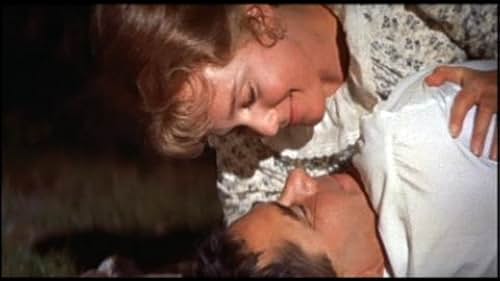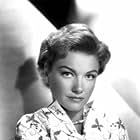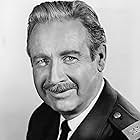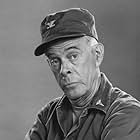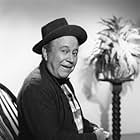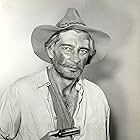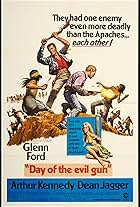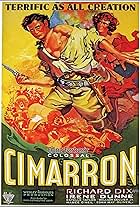IMDb RATING
6.4/10
3.5K
YOUR RATING
The Oklahoma Land Run of April 1889 sets the stage for an epic saga of a frontier adventurer, his wife and family and their friends.The Oklahoma Land Run of April 1889 sets the stage for an epic saga of a frontier adventurer, his wife and family and their friends.The Oklahoma Land Run of April 1889 sets the stage for an epic saga of a frontier adventurer, his wife and family and their friends.
- Nominated for 2 Oscars
- 3 nominations total
Harry Morgan
- Jesse Rickey
- (as Henry {Harry} Morgan)
- Directors
- Writers
- All cast & crew
- Production, box office & more at IMDbPro
Storyline
Did you know
- TriviaIn her memoir "Intermission," Anne Baxter said Glenn Ford and Maria Schell had become very close during production, but by the time the movie premiered in Oklahoma, the two were not speaking to each other.
- GoofsDuring the land rush, several men lasso an Indian driving a wagon and the rope is shown tightening around his neck as they pull him off. In the next scene, they are shown dragging him on the ground, but the rope is now around his waist.
- Crazy creditsOpening credits prologue: At high noon April 22, 1889 a section of the last unsettled territories in America was to be given free to the first people who claimed it. They came from the north and they came from the south and they came from across the sea. In just one day an entire territory would be settled. A new state would be born. They called it Oklahoma.
- ConnectionsFeatured in America at the Movies (1976)
- SoundtracksCimarron
Lyrics by Paul Francis Webster
Music by Franz Waxman
Sung by Roger Wagner Chorale (as The Roger Wagner Chorale)
Featured review
I did not see this when it was new. I remember thinking that it wasn't worth the effort then. It is less worth it now.
Its device is its scope, both in time and size. There are not one but two land grabs. it spans 25 years and much attention is spent on the theatrics of the sets. It must have been a strange year for this to have done well. At least we can value it to the extent that its success for Columbia made the scope of Lawrence of Arabia possible for MGM.
The story here is only there to support a celebration of settlers of Indian territories and to pull out a specific type which we are to admire as an ideal, an ideal American.
He is a champion of justice and a man of action. His adherence to certain principles punishes him. He is a proponent of civil rights here coded as Indian rights. What's not to like?
Well. He loves the adventure of the land. We get great vistas that anchor him in the place, a convention of Westerns since Ford. But he is not a man of the land, he is a city boy who likes adventure. That's this film's basic undoing of ideals.
It's reflected in the parallel western convention of woman as place. This guy loves deeply but he just can't settle with a woman. We see two.
When they meet, they talk of wives as mothers, companions and lovers. We are to admire that he does not need the first, is companion to nearly everyone and is deep in his love.
The narrative power of this idea by itself would be weak in any package. It is even worse here because of the inept direction. We see this more sharply now because of the obsolete acting and staging styles.
Ann Baxter is a pretty prostitute whose story of self is close to our hero. Though she has less screen time than the immigrant wife, we are to see her as genuine. It's really about her as the land, as the place, and why it isn't the blond wife.
Ted's Evaluation -- 1 of 3: You can find something better to do with this part of your life.
Its device is its scope, both in time and size. There are not one but two land grabs. it spans 25 years and much attention is spent on the theatrics of the sets. It must have been a strange year for this to have done well. At least we can value it to the extent that its success for Columbia made the scope of Lawrence of Arabia possible for MGM.
The story here is only there to support a celebration of settlers of Indian territories and to pull out a specific type which we are to admire as an ideal, an ideal American.
He is a champion of justice and a man of action. His adherence to certain principles punishes him. He is a proponent of civil rights here coded as Indian rights. What's not to like?
Well. He loves the adventure of the land. We get great vistas that anchor him in the place, a convention of Westerns since Ford. But he is not a man of the land, he is a city boy who likes adventure. That's this film's basic undoing of ideals.
It's reflected in the parallel western convention of woman as place. This guy loves deeply but he just can't settle with a woman. We see two.
When they meet, they talk of wives as mothers, companions and lovers. We are to admire that he does not need the first, is companion to nearly everyone and is deep in his love.
The narrative power of this idea by itself would be weak in any package. It is even worse here because of the inept direction. We see this more sharply now because of the obsolete acting and staging styles.
Ann Baxter is a pretty prostitute whose story of self is close to our hero. Though she has less screen time than the immigrant wife, we are to see her as genuine. It's really about her as the land, as the place, and why it isn't the blond wife.
Ted's Evaluation -- 1 of 3: You can find something better to do with this part of your life.
Details
- Release date
- Country of origin
- Official site
- Language
- Also known as
- Edna Ferber's Cimarron
- Filming locations
- Production company
- See more company credits at IMDbPro
Box office
- Budget
- $5,421,000 (estimated)
- Runtime2 hours 27 minutes
- Aspect ratio
- 2.35 : 1
Contribute to this page
Suggest an edit or add missing content


